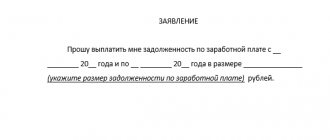Judicial practice: compensation for moral damage
Filing claims for compensation for moral damage is becoming a habit for residents of Omsk. Let's try to figure out what moral harm is and why it is eaten.
Alexander Illarionov, assistant judge of the Omsk Regional Court, Candidate of Legal Sciences
— Alexander Vasilyevich, what is the modern interpretation of the concept of “moral harm”? — Moral harm is understood as moral or physical suffering caused by actions or inactions that encroach on intangible benefits belonging to a citizen from birth or by force of law (life, health, personal dignity, business reputation, privacy, personal and family secrets, etc. .), or violating his personal non-property rights (the right to use his name, the right of authorship and other non-property rights in accordance with the laws on the protection of rights to the results of intellectual activity), or violating the property rights of a citizen. The institution of compensation for moral damage is new to domestic law. In the period from 1917 to 1990, this institute was not known to domestic legislation. For many decades, the concept that moral damage has no economic content and is not subject to property compensation has prevailed in our country. However, the idea of compensation for moral damage is not at all about measuring intangible benefits or personal non-property rights with money, as was believed in Soviet times. The essence of the institution of compensation for moral damage is to bring the offender to property liability, aimed at smoothing out the severity of the experiences caused by the offense, which caused physical and moral distress. Money here acts not as an equivalent to the suffering suffered, but as a source of positive emotions that can at least partially extinguish the negative effect caused to the human psyche.
For the first time in Russia, the institution of compensation for moral damage was enshrined in the USSR Law “On the Press and Other Mass Media” in 1990. This law provided for compensation for moral damage in the event of the dissemination of information that does not correspond to reality and discredits the honor, dignity, and business reputation of a citizen. Currently, according to current legislation, moral damage is subject to compensation when committing actions that violate personal non-property rights or encroach on intangible benefits belonging to a citizen. In case of violation of property rights, moral damage is subject to compensation only in cases provided for by law. Thus, the Law of the Russian Federation “On the Protection of Consumer Rights” (Article 15) provides for the possibility of compensation for moral damage to a consumer citizen in the event of a violation of his rights. In addition, the Labor Code of the Russian Federation (Article 237) provides for the possibility of compensation for moral damage in all cases, i.e. Regardless, there was a violation by the employer of the non-property (personal) rights or property rights of the employee.
Moral damage, unlike property damage, is compensated only in monetary form. Property damage can be compensated in kind (for example, by providing a thing of the same kind and quality) or through monetary compensation (compensation for losses) - Art. 1082 of the Civil Code of the Russian Federation.
— In what cases do citizens more often seek compensation for moral damage? — Practice shows that claims for compensation for moral damage are most often made in the framework of labor disputes (about reinstatement at work, recovery of wages, etc.), as well as cases on the protection of consumer rights. In addition, there are cases of claims for compensation for moral damage caused as a result of: dissemination of information discrediting honor, dignity and business reputation; road accident; illegal conviction, illegal prosecution, illegal use of detention or recognizance not to leave as a preventive measure, etc.
— If a person has suffered and wants to receive compensation for moral damage, what does he need to do for this? — It is impossible to specify the ideal subject of proof, suitable for all cases of compensation for moral damage. As a rule, the plaintiff must prove: the infliction of harm under certain circumstances (what the actions were when they were committed) and by a specific person; the degree of physical and moral suffering, how they are expressed; a cause-and-effect relationship between the harm and the resulting physical or mental suffering; amount of compensation for damage. The defendant has the responsibility to prove the absence of his guilt, since the guilt of the harm-doer is presumed. In some cases, for example, when harm is caused by a source of increased danger, the law establishes the possibility of compensation for moral damage, regardless of the guilt of the harm-doer. In cases of compensation for moral damage, as a rule, any means of proof provided by law can be used: explanations of the parties and third parties, testimony of witnesses, written and material evidence, expert opinions.
Let's give some examples. Thus, if harm was caused as a result of unlawful prosecution of criminal or administrative liability, copies of the acquittal, the decision to terminate the criminal case on rehabilitative grounds, a judicial act or an act of a higher official canceling the decision to impose an administrative penalty must be submitted.
If damage is caused as a result of the sale of low-quality goods, improper or untimely provision of services, i.e. arises from legal relations for the protection of consumer rights, then the fact of concluding an agreement is confirmed by a written agreement, sales receipts, cash receipts or testimony of witnesses, if the agreement does not require a mandatory written form. Inadequate quality of the product can be confirmed by an expert opinion. If moral damage was caused as a result of a traffic accident, then a protocol and other documents about the accident, a copy of the resolution in the case of an administrative offense or a sentence in a criminal case may be presented, in the case of a death, also a certificate about the composition of the family of the deceased, about the persons dependents and other evidence. If moral damage is caused as a result of the dissemination of information that does not correspond to reality, discrediting honor, dignity and business reputation, then the fact of dissemination of this information must be proven - this could be publications in the media, recordings of television programs, minutes of meetings (for example, of a work collective), confirming the dissemination of information.
— What are the criteria that judges use when determining the amount of compensation for moral damage? - In Art. 151 of the Civil Code, the legislator established the following criteria that must be taken into account by the court when determining the amount of compensation for moral damage: - the degree of guilt of the offender; - the degree of physical and moral suffering associated with the individual characteristics of the person who suffered harm; - other circumstances worthy of attention. With the entry into force of the second part of the Civil Code, this list was supplemented in Art. 1101 by the following criteria: - the nature of physical and moral suffering, which must be assessed taking into account the actual circumstances in which moral harm was caused and the individual characteristics of the victim; - requirements of reasonableness and justice. The degree and nature of the victim’s physical and moral suffering must be taken into account in conjunction with the individual characteristics of the victim. The amount of compensation for moral damage in the event of injury to health (for example, in an accident, the provision of medical services), determined by judges, depends primarily on the severity of the injuries: light, moderate or serious injury to health. Another criterion for determining the amount of compensation for moral damage, used in cases of harm to life and health, is the requirements of reasonableness and fairness. These requirements include, in particular, those provided for in Art. 1083 of the Civil Code of the Russian Federation, taking into account the property status of the tortfeasor.
— In what cases does a plaintiff receive a denial of a claim for compensation for moral damage? — Refusal usually occurs when a claim is made for compensation for moral damage in connection with a violation of property rights in cases not provided for by law. Property insurance and pension disputes are typical cases where the law does not provide for the possibility of compensation for moral damage. When committing actions that violate personal non-property rights or encroach on intangible benefits belonging to a citizen, if the claim for compensation for moral damage is justified, i.e. the fact of causing harm is proven, the claims are satisfied either in full or in part.
— Are there plans to expand legislation in this area? — If you look at the development of Russian legislation, it is noticeable that the range of legal relations that fall under the actions of this institution is expanding. Perhaps the legislation will change in the future.
— What should a person do who is not satisfied with the amount he was awarded as compensation for moral damage? — If the plaintiff does not agree with the court decision, then he can appeal to a higher court through the appeal, cassation, and also supervisory procedures.
Ekaterina LESINA
Cases from practice
Unlucky suicide In July 2008, a 7-year-old girl was walking at the entrance to her house. At the same time, in an apartment located on the ninth floor, the 29-year-old Omsk resident was once again sorting things out with his ex-wife. He persuaded the woman to get back together, threatening her with suicide. That day he decided to carry out the threat... Having thrown himself out of the window, the suicide accidentally fell right on the child. The man and girl survived, although they were seriously injured. The baby, with a hip fracture and other numerous injuries, spent about three months in the hospital. In court, the victim’s parents demanded that the person responsible for their troubles compensate for treatment costs in the amount of 30 thousand rubles; they assessed moral damage at 500 thousand rubles. The court recovered from the would-be suicide in favor of the parents of the injured girl 27 thousand rubles in compensation for treatment expenses and 80 thousand rubles in compensation for moral damage.
Conductor versus passenger On March 17, 2009, the conductor of bus route No. 109 and the driver were returning to the garage after their shift and picking up passengers along the way. The conductor announced many times that the final stop of the bus would be “Dispatcher”. However, the last passenger demanded to be taken to school No. 55. The driver did not turn the car around, and the passenger refused to leave the cabin. When the bus stopped at a gas station, the driver got out of the cab, and the conductor began to wash the floor. The parties describe further events in different ways. The conductor, without pleading guilty, stated that she did not hit the passenger, but was only trying to calm her down. But she responded by fighting with her, during which she caused bodily harm to herself. She also did not force the passenger out of the cabin. The woman accidentally fell into the street, having tripped during the scuffle. According to the victim, the conductor beat her with a mop and punched her, tore off her glasses and broke her mobile phone. Ultimately, the conductor jerked her up and threw her backwards out of the bus. The court considered the victim's testimony to be truthful. Her version was confirmed by two witnesses to the conflict. That evening, after the fall, the woman was no longer able to get up. At the hospital, she was found to have a broken leg and bruises on her head and arms. According to the court verdict, the conductor must compensate the victim for treatment costs in the amount of 28,365 rubles and moral damages in the amount of 30 thousand rubles. The court sentenced her to 1 year of suspended imprisonment with a probationary period of 1 year 6 months.
Payment for slander on the Odnoklassniki website An Omsk resident (born in 1971), a teacher of mathematics and computer science at one of the city’s universities, filed a lawsuit. In 2008, on the Odnoklassniki website, she met and began to communicate with her peer and colleague, a teacher at Omsk State University. Over time, the correspondence began to be exclusively negative. As a result, the interlocutors had to sort things out “in real life” - in the Central District Court of Omsk. The plaintiff stated that on January 27, 2009, on the public forum of the Omich group of the Odnoklassniki website, her offender posted a message: “You were expelled from the university in disgrace...” There were also various curses addressed to the woman. The plaintiff provided the court with a printout of this Internet page. The defendant did not deny his authorship. Meanwhile, the woman brought documents to the trial confirming her voluntary dismissal. She estimated her moral damage at 100 thousand rubles. The court recovered from the defendant in favor of the plaintiff compensation for moral damage in the amount of 1,500 rubles, and legal costs in the amount of 100 rubles. The court took into account that the woman herself provoked the defendant and other visitors to the site to be negative. According to the man, he has long been doing everything possible to interrupt correspondence, adding the interlocutor to the “black list”. But she continues to write curses and insults at him. The plaintiff did not deny this in court, explaining that it was “more interesting for her to live.”
According to the website of the Omsk Regional Court
Moral injury
Concept of moral hazard
Moral harm, as a rule, is understood as causing moral and physical suffering to a person, which violates the comfort of life, the state of human health, etc.
In Art. 151 of the Civil Code of the Russian Federation, moral harm is disclosed by the legislator as physical or moral suffering caused to a citizen by actions that violate his personal non-property rights or encroach on intangible benefits belonging to the citizen, as well as in other cases provided for by law.
A broader definition was given by the Supreme Court of the Russian Federation in paragraph 2 of Plenum Resolution No. 10 of December 20, 1994 “Some issues of application of legislation on compensation for moral harm” (hereinafter referred to as Plenum Resolution No. 10): moral harm is understood as moral or physical suffering caused by actions ( inaction), encroaching on intangible benefits belonging to a citizen from birth or by force of law (life, health, personal dignity, business reputation, privacy, personal and family secrets, etc.), or violating his personal non-property rights (the right to the use of one’s name, the right of authorship and other non-property rights in accordance with laws on the protection of rights to the results of intellectual activity), or violating the property rights of a citizen.
Thus, moral harm is suffering caused to a citizen (person) by the actions (inaction) of third parties that violated his rights, freedoms and legitimate interests.
Signs of moral harm
Moral damage, unlike property damage, often exists only in the consciousness of a citizen (person) and can be externally expressed in various ways that are subjective in nature. Therefore, difficulties may arise in determining specific signs of moral harm.
However, based on the above definitions of moral harm, it can be assumed that the signs of moral harm include:
a) moral suffering - a feeling of internal psychological discomfort, experiences that lead to a deterioration in the internal and external comfort of life, affect the perception of life. They can be expressed in various ways: fear, excitement, anxiety, irritability, shame, depressed mood, etc. They are an obligatory element of moral harm, since the word “moral” itself implies affecting the moral and mental component of a person;
b) physical suffering - a feeling of physical (physiological) discomfort, expressed in pain and other unpleasant phenomena of a physiological nature (fever, systemic and non-systemic dizziness, etc.). They are caused both by injury and illness, and by the influence of external negative factors, poisonous and other harmful effects (for example, high temperature, toxic substances, etc.). They are not a mandatory element of moral harm. But, as a rule, the infliction of physical suffering inevitably causes the appearance of moral suffering. Also, moral suffering can cause physical suffering, when internal experiences provoke physical discomfort, increased blood pressure, fever, etc.
The Supreme Court of the Russian Federation pointed out similar content and signs of moral harm, explaining that moral harm, in particular, may consist of moral experiences in connection with the loss of relatives, the inability to continue an active social life, loss of a job, disclosure of family or medical secrets, the dissemination of information that is true, discredits the honor, dignity or business reputation of a citizen, temporary restriction or deprivation of any rights, physical pain associated with injury, other damage to health, or in connection with a disease suffered as a result of moral suffering, etc. ( paragraph 2, paragraph 2 of the Plenum Resolution No. 10).
Liability for causing moral damage
According to Art. 151 of the Civil Code of the Russian Federation, if a citizen has suffered moral harm, the court may impose on the offender the obligation of monetary compensation for the specified harm.
Liability for causing moral damage is also provided for in Art. Art. 1099 - 1101 of the Civil Code of the Russian Federation in the form of recovery of compensation in monetary form.
Thus, liability for causing moral damage is of a civil, property nature, and is expressed in the collection of monetary compensation in favor of the injured person.
Compensation for moral damage and the procedure for awarding it
In accordance with paragraph 1 of Art. 1101 of the Civil Code of the Russian Federation, compensation for moral damage is carried out in cash. A similar form of compensation is provided for by the norms of other federal laws. So, for example, in Art. 237 of the Labor Code of the Russian Federation states that moral damage caused to an employee by unlawful actions or inaction of the employer is compensated to the employee in cash.
The amount of compensation for moral damage can be determined in several ways:
a) by agreement of the parties to the dispute among themselves, including in pre-trial proceedings, or in court by concluding a settlement agreement (Article 39 of the Code of Civil Procedure of the Russian Federation) or until moral harm is caused, for example, by fixing the corresponding provision in the employment contract (Article 237 of the Labor Code of the Russian Federation );
b) in court - by the court based on an assessment of the evidence provided in the case materials.
In most cases, in practice, the recovery of compensation for moral damage is carried out in court. In this case, according to paragraph 2 of Art. 1101 of the Civil Code of the Russian Federation, the amount of compensation is determined by the court. In this case, the court evaluates:
a) the nature of the physical and moral suffering inflicted on the victim.
For example, when determining the amount of compensation, the court proceeded from the fact that as a result of the actions of the defendant, the plaintiff suffered bodily injuries that did not cause harm to his health (Appeal ruling of the Rostov Regional Court dated August 25, 2016 in case No. 33-14823/2016).
The degree of moral or physical suffering is assessed by the court taking into account the actual circumstances of the infliction of moral harm, the individual characteristics of the victim and other specific circumstances indicating the severity of the suffering he suffered (paragraph 2, paragraph 8 of Resolution of the Plenum No. 10);
b) the presence of a cause-and-effect relationship between the factors allegedly causing harm and the occurrence of harm.
For example, to substantiate the claim for compensation for moral damage, the plaintiff indicated that as a result of the defendant’s unlawful actions, his health condition deteriorated. A forensic medical examination was ordered in the case, the conclusion of which had a probabilistic ambiguous conclusion - the aggravation could be caused by various factors, incl. stressful situations due to the behavior of the alleged perpetrator of harm. In this situation, the court considered the cause-and-effect relationship between the defendant’s behavior and the occurrence of an exacerbation unproven. And although, as a result, compensation for moral damage was recovered taking into account other factors, its amount was lower than expected (Appeal ruling of the Altai Regional Court dated October 9, 2013 in case No. 33-5345/2013);
c) the degree of guilt of the harm-doer, unless the law provides for compensation for harm regardless of the presence of guilt.
Thus, when determining the amount of compensation, the court had to take into account the degree of guilt of the harm-doer, that is, the adoption by the relevant body (institution) of all possible and dependent measures to comply with the proper conditions for serving a sentence of imprisonment (in particular, in order to ensure the privacy of sanitary -hygienic procedures) (Determination of the Judicial Collegium for Civil Cases of the Supreme Court of the Russian Federation dated November 14, 2017 N 84-KG17-6).
Cases when compensation for moral damage is carried out regardless of the guilt of the harm-doer are specified in Art. 1100 Civil Code of the Russian Federation:
- harm was caused to the life or health of a citizen by a source of increased danger;
- harm was caused to a citizen as a result of his illegal conviction, illegal prosecution, illegal use of detention or recognizance as a preventive measure, illegal imposition of an administrative penalty in the form of arrest or correctional labor;
- harm was caused by the dissemination of information discrediting honor, dignity and business reputation;
- in other cases provided by law.
Due to the fact that moral and physical suffering is subjective in nature and depends on the characteristics of a particular person, they, unlike property damage, are difficult to assess and measure with objective indicators, therefore the nature of physical and moral suffering is assessed by the court taking into account:
a) the actual circumstances in which moral damage was caused.
For example, when satisfying the claim for compensation for moral damage, the court took into account the fact that the insult to the victim was inflicted in public; the perpetrator hit the pregnant victim, who was hospitalized in a hospital due to the threat of miscarriage (Appeal ruling of the Krasnodar Regional Court dated August 16, 2016 in case No. 33 -20241/2016).
The behavior of the victim at the time of the harm is also taken into account.
Thus, the judicial panel agreed with a reduction in the amount of compensation for moral damage, since the plaintiff, being in the car as a passenger in the front seat, in violation of clause 5.1 of the Russian Federation Traffic Regulations, was not wearing a seat belt, which aggravated the severity of the injuries he received (Appeal ruling of the Sverdlovsk Regional Court dated July 24, 2014 in case No. 33-9003/2014);
b) the individual characteristics of the victim.
For example, the court took into account such a factor as the continuation of pain in the injured knee joint even after treatment, that is, the long-term nature of the victim’s physical suffering (Appeal ruling of the Supreme Court of the Republic of Adygea dated March 25, 2016 in case No. 33-404/2016).
In another dispute, the court drew attention to the type of activity of the victim (trainer), based on and requiring regular physical activity. The injuries received by the plaintiff certainly prevented the exercise of professional activity for a long period of time, which cannot be limited only by the time of incapacity determined by the medical organization, that is, the victim was deprived of the opportunity to exercise his right to work for a long time (Appeal ruling of the Perm Regional Court dated 10/05/2015 in case No. 33-10360/2015).
So, the amount of compensation is determined in each specific case individually, taking into account all the circumstances of the case. Meanwhile, when determining the size in accordance with clause 2 of Art. 1101 of the Civil Code of the Russian Federation, the requirements of reasonableness and fairness must be taken into account. In this regard, judicial acts on the collection of compensation may be changed or canceled on the grounds of disproportionate and unfair compensation.
For example, the appellate court changed the decision of the first instance court regarding the amount of compensation for moral damage collected, since the amount is underestimated and does not correspond to the volume of the plaintiff’s rights violated, the requirements of reasonableness and fairness. Taking into account the factual circumstances of the illegal criminal prosecution, its duration, the nature of the moral suffering that the plaintiff suffered, his state of health, age, the requirements of reasonableness and fairness, the judicial panel came to the conclusion that it was necessary to increase the compensation for moral damage collected by the court (Appeal ruling of the Supreme Court of the Republic Bashkortostan dated August 30, 2016 in case No. 33-16727/2016).
Claim for compensation for moral damage
To recover compensation for moral damage, a claim must be filed in court. A claim for compensation for moral damage can be combined with other claims, but it is also possible to file an independent claim with only one claim for compensation (clause 9 of Plenum Resolution No. 10).
The statement of claim is subject to general requirements, in particular those specified in Art. Art. 131 and 132 of the Code of Civil Procedure of the Russian Federation. Based on their meaning, the application must necessarily contain the following information:
a) indication of the cause of harm;
b) under what circumstances and how the harm was caused and what evidence confirms this;
c) what the moral damage is, that is, what specific suffering the plaintiff experienced. It is worth noting that this is not always required, since in labor disputes and disputes over the protection of consumer rights, compensation for moral damage can be recovered if a violation of a citizen’s legal rights is proven. However, an indication of the degree of harm caused, of what the harm is expressed in, can significantly affect the amount of compensation.
In a number of cases, if a violation of a citizen’s rights or physical harm to the health or life of loved ones is proven, moral harm is presumed (presumed to have been caused). For example, in the case of harm to the health of the victim, since in all such cases the victim experiences physical or moral suffering, therefore the fact of causing him moral harm is assumed, and in this case only the amount of compensation for moral harm is subject to determination (paragraph 2 of clause 32 of the Resolution of the Plenum Supreme Court of the Russian Federation dated January 26, 2010 No. 1 “On the application by courts of civil legislation regulating relations under obligations resulting from harm to the life or health of a citizen”).
When submitting an application, a state fee is paid on the basis of paragraphs. 3 p. 1 art. 333.19 of the Tax Code of the Russian Federation as for a claim of a non-property nature (clause 10 of the Resolution of the Plenum No. 10). This is due to the fact that, although compensation for moral damage is sought in monetary form, the damage itself is of a non-property nature.
So, moral harm is suffering caused to a citizen (person) by the actions or inaction of third parties that violated his rights, freedoms and legitimate interests; includes two main features - moral and physical suffering. Liability for causing moral damage is of a civil nature in the form of payment of monetary compensation to the victim. Compensation is paid by the causer of harm voluntarily or in court. In the latter case, the amount of compensation is determined by the court, taking into account all the circumstances of the harm and the individual characteristics of the victim.
Prepared based on material by S.A. Slesareva,
private practicing lawyer, expert, Mtsensk








